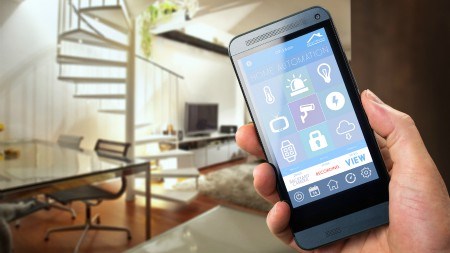The smart home market is growing rapidly globally as it becomes more accessible to the average homeowner. South Africans, and millennials in particular, are sitting up and taking notice too.
While smart homes are by no means a new concept, this cutting-edge technology is still regarded by many as the domain of wealthier home owners and tech junkies; well beyond the means and skills of the average householder.
However, this perception is changing quickly as strident advances are make smart home technology increasingly accessible and user-friendly. The Smart Home Market Overview 2017 released last year revealed that the global smart home market almost doubled between June 2016 and June 2017 and by the end of last year, the global market was worth estimated to be worth $14.7 billion. The statistics portal, Statista, is predicting a spike in this sector with forecasts of a value in excess of $40 billion 2020.
Sandy Geffen, Executive Director of Lew Geffen Sotheby’s International Realty in South Africa, says: “There is no doubt that the era of smart homes has officially dawned and, although South African consumers have been a bit slower on the uptake, they are beginning to sit up and take notice.
“However, whether or not home owners are yet seduced by the convenience, comfort and peace of mind these cutting-edge systems can offer, what they should not ignore is the fact that the biggest adopters of this technology are also the largest emerging home buying market – millennials.
“It is therefore very likely that in the near future, smart systems will be at the top of the wish list for these buyers who have never known life without the internet; a generation for whom technology is an intrinsic part of their daily lives.”
Geffen adds that another reason not to summarily dismiss the technology is that one of the most effective features is already a priority for every South African household – home security.
Says Geffen: “Most experts agree that the most effective way to prevent criminals from gaining access to your property is through a layered security system, and by skilfully incorporating security and surveillance features in your smart home network you can tighten your security exponentially.”
Steven Jowell, managing Director of inHarmony Solutions in Cape Town, explains: “One of the key security advantages is that you can monitor your home remotely, giving you more freedom and greater peace of mind.
“Using only an app or web browser on your phone, you can check on the status of the alarm, cameras or motion sensors at any time and from anywhere and, by installing a smart intercom and camera, you can ‘answer’ your door from any location, making it appear as if you’re at home.
“You can even allow guests access to your home while you are out and once the visitor has left, the status of entry points such as doors can be confirmed and the alarm reset.”
He adds that the remote features are especially advantageous for landlords of short-term accommodation like Airbnb properties. Although the local market for smart home systems is still relatively small, Jowell reports that there has been a perceptible increase in demand during the last year.
Says Jowell: “Statista research in the South Africa market has indicated that revenue is expected to show an annual growth rate of 37.1% in the next four years with an anticipated household penetration of 3.6 % in 2018that is expected to hit 9.8 % by 2022.
“It’s no longer a question of whether this technology will become mainstream in South Africa, but rather when. Unfortunately, the misconception that these systems are a financially crippling luxury persists, but this could not be further from the truth.
“There is now a wider variety of products available than ever before, with quality base systems starting at around R5000. Furthermore, it’s also not necessary to buy an entire system at once as additional components can easily be implemented in stages. In fact, this is advisable for first time buyers as it gives them time to get to understand the technology, get used to the new way of living and determine their future needs.
“This adjustment period is important as smart home systems can be completely tailored to your home and lifestyle, which allows you to decide which appliances and devices you want to automate and integrate and what level of control you need. However, the configuration in not cast in stone and can be changed by the user at any time if it’s not working for you.”
He adds that another advantage of the latest technology is that it can also be retrofitted into any home. Geffen concludes: “Smart home technology is not only about being able to manage all your appliances from an app, switch on lights by voice activation and enjoy the convenience of having a pre-heated oven by the time you get home after a long day.
“It can exponentially increase your level of security and, most significantly, it prepares your home for a new generation of buyers. Recent polls indicate that up to 45% of Americans are saying that they have or are planning on investing in smart home technologies and although we are only beginning to embrace the technology, it cannot be denied that the future is now.”



